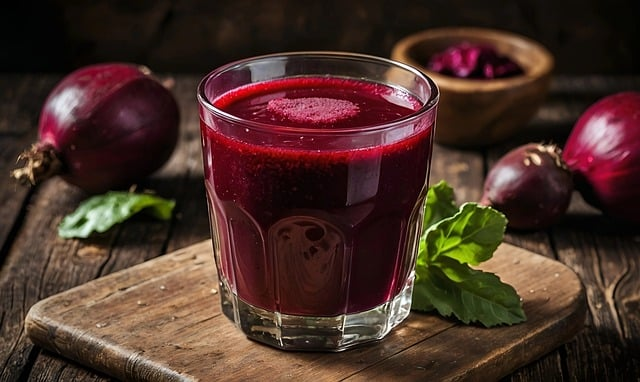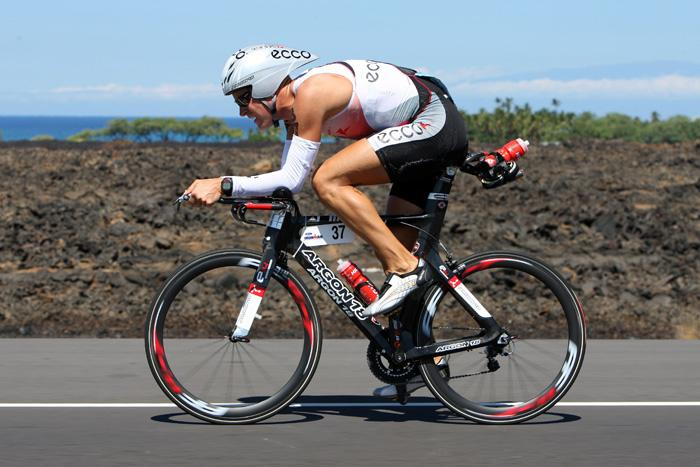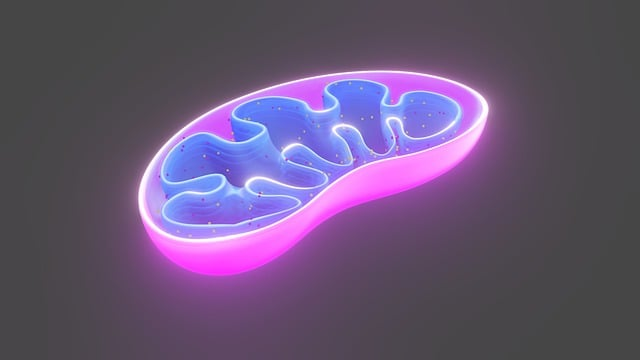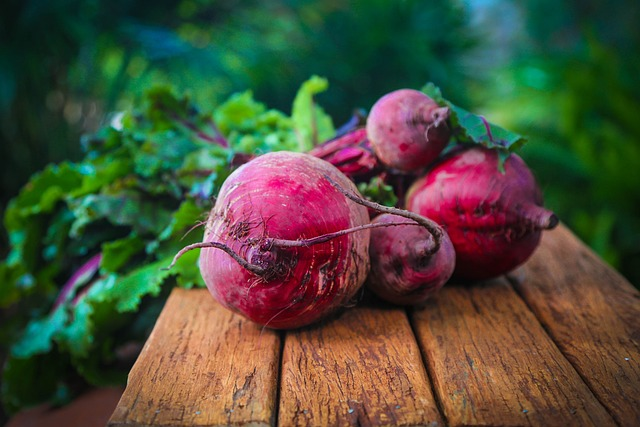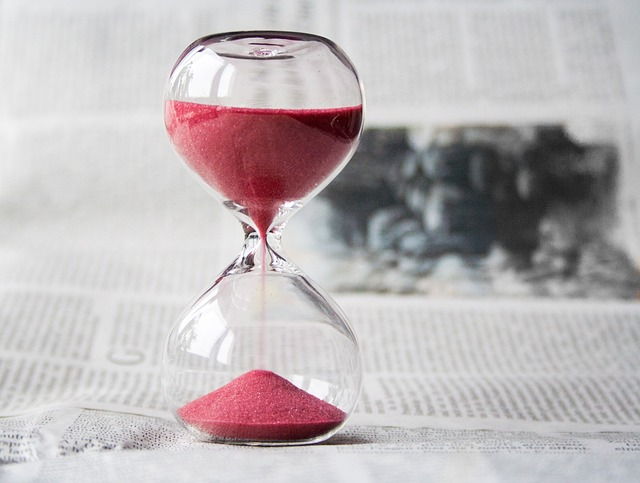How Beetroot Juice Improves Endurance Performance
Substances that improve exercise or sports performance are known as ergogenic aids. Despite what many self-proclaimed experts might say, there are very few substances that are tried and true to improve performance.
Beet juice is one of those substances.
Beet juice is a rich source of inorganic nitrate (NO3−), which is converted into nitric oxide (NO) within the body. Nitric oxide is a key molecule that plays a critical role in improving athletic performance.
While cooked beets won't provide the same quantity of nitrates as raw beet juice due to the cooking process, they are still beneficial for health and can be a good alternative for lowering blood pressure, though raw beet juice is more potent in this regard.
Below we will dive into the research on beet juice, and then discuss the right dosage and product to improve your endurance performance.
How Beetroot Juice, via Nitric Oxide, Enhances Sports Performance
Improved Exercise Economy
Increased Time to Exhaustion
Enhanced Mitochondrial Efficiency
Improved Muscle Contraction and Relaxation
Improved Performance in Hypoxic Conditions
Improved Exercise Economy
Beetroot juice supplementation can enhance exercise economy by achieving a higher power output with the same oxygen consumption (VO2). This means athletes can work harder without significantly increasing their oxygen utilization. Their fuel economy/efficiency has thus improved.
Additionally, beetroot juice can help lower blood pressure through vasodilation, contributing to this improved exercise economy by enhancing the delivery of oxygen and nutrients to muscles and organs.
Upper body endurance activity may require increased amounts of beet juice.
Improved Upper Body Endurance Performance:
One study on national-level male kayakers found that consuming 70ml of beetroot juice (~4.8 mmol of nitrate) approximately 2.5 hours before a 4-minute maximal effort performance trial resulted in a significantly lower average VO2 and improved exercise economy compared to a placebo.
A separate study on international-level female kayakers showed that consuming two 70ml beetroot juice shots (~9.6 mmol of nitrate) two hours before a 500m time trial significantly enhanced performance by 1.7%.
This performance boost exceeded typical performance variations seen in elite female kayakers for this distance. The study suggests that a greater nitrate load might be responsible for this more significant improvement.
Improved Lower Body Performance:
A study on club-level male cyclists demonstrated that consuming 500ml of beetroot juice (~6.2 mmol of nitrate) 2.5 hours before 4km and 16.1 km time trials improved performance by 2.8% and 2.7%, respectively.
This improvement was linked to a higher power output achieved for the same oxygen consumption. The study also highlighted that these performance enhancements were significantly greater than the typical variability in time trial performance.
Another study on trained male triathlete cyclists revealed that supplementing with 140ml of beetroot juice (~8 mmol of nitrate) for six days led to a reduction in VO2 during a 60-minute test and improved their performance in a 10km time trial performed immediately after, potentially by delaying muscle fatigue and allowing for sustained power output.
Increased Time to Exhaustion
Athletes often experience improved time to exhaustion at submaximal intensities after beetroot juice supplementation. This finding suggests that beet juice could help athletes sustain effort for longer periods by delaying the onset of fatigue.
One study on experienced cyclists found that beetroot juice supplementation (8.2 mmol nitrate) allowed athletes to maintain 60%, 70%, and 80% peak power for significantly longer durations compared to a placebo.
This might be due to a lower VO2 response at submaximal intensities, which could reduce the increase in the slow component of VO2, delaying fatigue and allowing for longer sustained effort.
Another study on trained cyclists found that supplementing with beetroot juice for six days resulted in reduced VO2 during a 60-minute test, which involved 30 minutes at 45% VO2max followed by 30 minutes at 65% VO2max.
This reduction in VO2 at submaximal intensities might explain the longer durations of sustained power output observed in the athletes.
A synthwave mitochondria
Enhanced Mitochondrial Efficiency
Beetroot juice may contribute to increased mitochondrial efficiency and oxidative phosphorylation. While acute supplementation might not be sufficient to induce mitochondrial biogenesis, longer supplementation periods, such as six days or more, may lead to such adaptations. This, in turn, could contribute to reduced oxygen consumption and improved performance.
One study, Larsen et al. (2011), investigated the effects of dietary inorganic nitrate on mitochondrial efficiency in humans and found a "reduced proton leakage across the inner mitochondrial membrane" in skeletal muscle mitochondria taken from subjects after six days of dietary nitrate supplementation. The study suggests that this reduction in proton leakage is a "mechanism that may contribute to the reduced O2 cost of exercise after nitrate supplementation."
Improved Muscle Contraction and Relaxation
Beetroot juice consumption might improve muscle contraction and relaxation processes, especially during high-intensity activities. This improvement might also mitigate the risk of muscle cramps, possibly by modulating calcium release following action potentials. Improved muscle function can enhance performance in sports with predominantly aerobic or anaerobic metabolism.
Improved Efficiency, Not Force: The research primarily focuses on beetroot juice's ability to improve the efficiency of muscle contractions rather than directly enhancing the force of contraction. For example, the paper "Beetroot Juice Improves On-Water 500 M Time-Trial Performance, and Laboratory-Based Paddling Economy in National and International-Level Kayak Athletes" found an effect on the metabolic cost of contraction rather than the contractile mechanism itself.
Improved Performance Under Hypoxia During Intense Exercise
While the evidence is conflicting, beetroot juice supplementation may improve performance in hypoxic conditions (like high altitudes) by improving oxygenation at the muscular level, thereby reducing the negative effects of hypoxia on aerobic performance.
Optimal Dose of Beetroot Juice: A Complex Issue
Determining the optimal dose of beetroot juice in mL for enhancing athletic performance is complicated by several factors.
Nitrate Content Variation: The amount of nitrate, the key compound believed to be responsible for beetroot juice’s ergogenic effects, can vary greatly between beetroot varieties, growing conditions, preparation methods, and whether the product is fresh or processed. This makes it difficult to define a standard mL dose that guarantees a specific nitrate intake.
Limited Focus on mL Dosage: Many studies on beetroot juice and athletic performance focus on nitrate intake in mmol rather than the volume of beetroot juice in mL. They often specify nitrate doses (e.g., 5 mmol, 8.4 mmol) and sometimes mention the volume of a specific beetroot juice product used to achieve that dose. However, they don’t offer a generalizable optimal mL dose across all beetroot juice products.
Minimum Effective Dose
A 2018 study by Gallardo and Coggan suggests that a minimum of 5 mmol of nitrate per serving is likely needed to enhance exercise performance in most individuals.
Acute Dosages
A 2011 study by Lansley et al. found that 500mL of beetroot juice containing 6.2 mmol of nitrate improved 4 km and 16.1 km cycling time trial performance.
A 2015 study by Peeling et al. on kayakers found that 70 mL of beetroot juice containing approximately 4.8 mmol of nitrate improved exercise economy during laboratory tasks, while 140 mL (~9.6 mmol nitrate) enhanced 500-meter on-water time trial performance in kayakers.
A 2013 study by Kelley et al. used 500 mL of concentrated beetroot juice (2 x 250 mL) containing approximately 8.2 mmol of nitrate to investigate its effects on endurance during severe-intensity cycling exercise.
Chronic Dosages
Cermak et al. (2012) found that daily consumption of two 70 mL beetroot juice shots (totaling 140 mL, approximately 8 mmol nitrate) for six days improved 10 km cycling time trial performance in trained cyclists.
A study by Wylie et al. (2013) investigated the effects of different chronic beetroot juice dosages on oxygen kinetics. Participants consumed 70 mL, 140 mL, or 280 mL of beetroot juice daily, providing varying nitrate intakes (4.2, 8.4, and 16.8 mmol, respectively).
A study by Bailey et al. (2009) used a chronic protocol of 500 mL beetroot juice daily for six days (approximately 5.1 mmol nitrate) and observed reduced oxygen cost of exercise, reduced slow component of VO2 and increased time to exhaustion.
A study by Puype et al. (2015) looked at the effects of dietary nitrate supplementation on endurance training in hypoxia and involved athletes consuming 500 mL of beetroot juice daily (approximately 5.8 mmol nitrate) over six weeks.
Individual Variation: It's important to note that individual responses to beetroot juice supplementation can vary. Factors such as age, diet, training status, exercise type, and environmental conditions can influence its effectiveness.
Timing
Beetroot juice should be consumed approximately 90 minutes before exercise for optimal results. The peak concentration of NO2− in the blood occurs within 2–3 hours of NO3− supplementation. If you are taking a supplement high in NO2- (and not NO3-), you should take this 30-60 minutes prior.
Oral Antiseptics
Avoid using oral antiseptics alongside beetroot juice supplementation, as they can interfere with the conversion of nitrate to nitrite in the mouth, hindering the increase in NO2− levels.
Which Beet Juice Product Should You Choose?
My personal bias is commonly to choose the vegetable or a juice of the vegetable. Real food has checks and balances that supplements do not. Choosing this route can keep you from consuming too much of a good thing and will support our metabolic pathways as they’re meant to be. There’s a whole lot of good elsewhere in a beet as opposed to a stripped-down supplement.
That all being said, our juice of choice is Lakewood Organic. As you can see from the research below, the nitric oxide content per serving far exceeds the minimal effective dose. This product, at least here in San Diego, is easy to find.
Gallardo 2019
Conclusion
Beetroot juice stands as a potent ergogenic aid that can significantly improve athletic performance. Its high inorganic nitrate content, which is converted into nitric oxide in the body, has multiple benefits including:
Improved exercise economy
Increased time to exhaustion
Enhanced mitochondrial efficiency
Improved muscle contraction and relaxation
Improved performance in hypoxic conditions
The research is abundant and persuasive, highlighting beetroot juice's ability to improve both upper and lower body performance and endurance.
Studies suggest to consume beet juice 90 minutes prior to activity and that a minimum of 5 mmol of nitrate per serving is likely needed to enhance exercise performance in most individuals.
Individual responses to beetroot juice supplementation can vary, influenced by factors such as age, diet, training status, and environmental conditions. Therefore, it is important for athletes to experiment and find the dosage and timing that works best for them. Use the research in mL above to guide you.
As usual, it is advisable to consume the vegetable or its juice rather than a supplement to benefit from the holistic nutritional profile of beets and support our metabolic pathways as they’re meant to be supported.

